Rangers 'covered up' reasons for abuse claim coach's departure
- Published
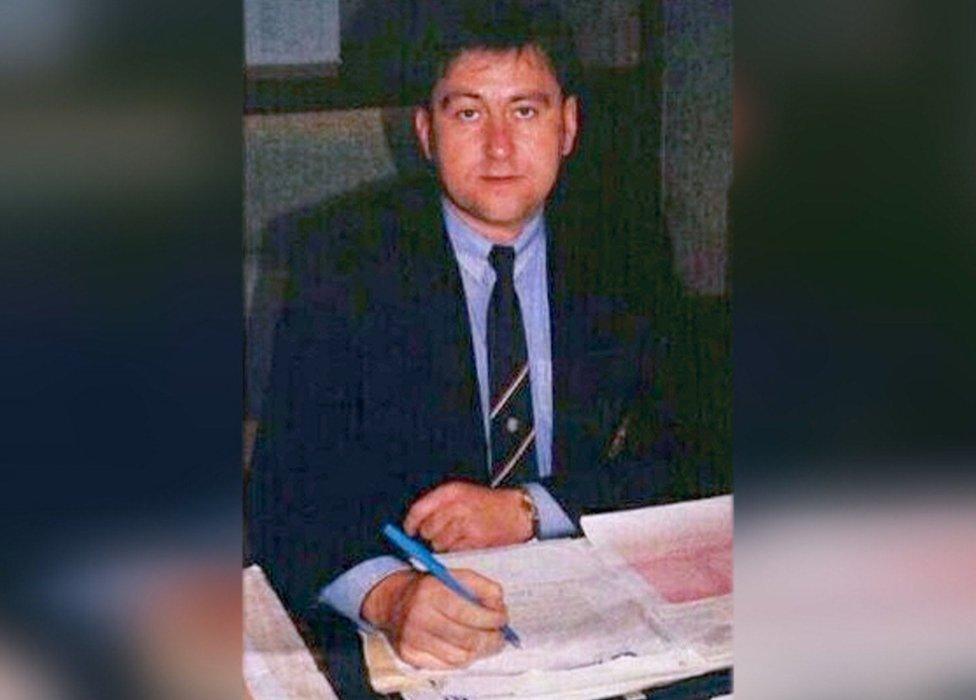
Gordon Neely, pictured during his time at Ibrox, died in 2014
New evidence has emerged suggesting Rangers FC covered up the reasons why a former youth coach accused of child sex offences left the club.
Rangers have consistently said they sacked Gordon Neely in 1991 after a complaint from worried parents and then reported him to the police.
But the new evidence shows that is not what the club said publicly at the time - and Neely's alleged victim insists a police report was never made.
Rangers denied a cover-up.
Gordon Neely coached children at Hutcheson Vale, Hibernian and Rangers in the 1980 and 90s. A BBC Scotland investigation in 2017 revealed the extent of his abuse at those three clubs, including allegations that Hibs failed to pass on concerns about his behaviour when Neely moved to Rangers in 1986.
Neely would carry on abusing at Rangers until a complaint was made in 1991 which led to his dismissal.
Rangers told the BBC in 2017 that Neely was sacked and reported to the police. Two months ago, the club told The Sun:, external "It was important Rangers took both steps without delay to address this matter."
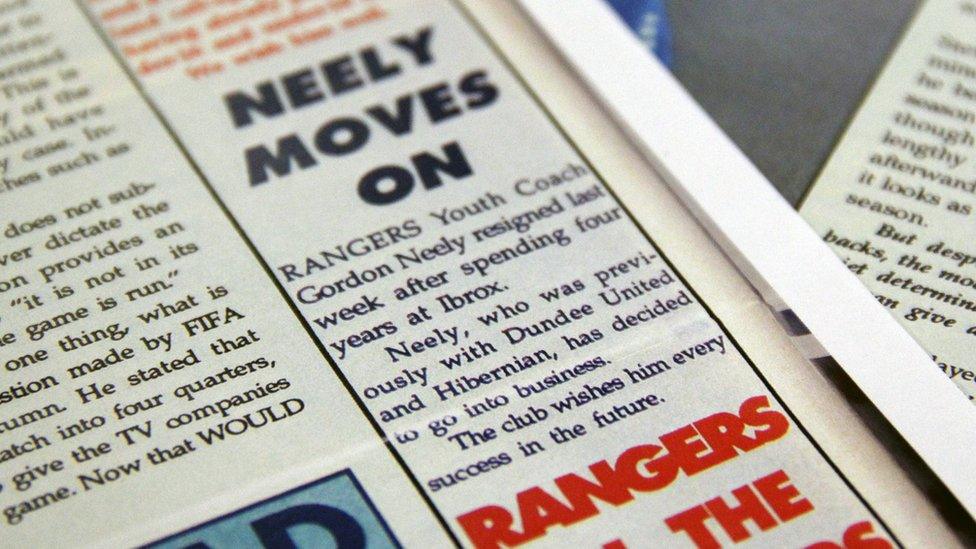
The BBC has obtained an article in the club's newspaper
However, this has been called into question after the BBC obtained an article in the club's newspaper marking his departure, which made no mention of abuse concerns and wished him "every success in the future".
The boy who made the complaint which led to Neely's sacking has broken his silence and says Rangers' statements that a police report was made are "total lies".
'What just happened?'
Former Rangers youth team player John (not his real name) says he fell victim to Neely in 1991.
One night before training, when he was aged 14, he says he was told to go and see Neely in his office over an apparent breach in discipline.
John said: "[Neely] says: 'Well there's two ways we can deal with this… I can go and tell your parents and you'll never play for Rangers again. Or we can do it my way which is that I'll take you in this office, pull your trousers down, and spank your bum'… And I said: 'Well, we'll do it your way.'
"And he went and snibbed the door… took down my pants and he bent me over his knee and I can always remember his hand going up...
"I shut my eyes expecting the thud. But just at that he said: 'That's enough… go and get changed and go for your training.' So I don't know whether something's spooked him… but that's what he done.'
"I was… confused, a bit 'what just happened there? What have I done?' I've not done anything wrong. I was just, I couldn't believe it."
'They didn't go the police'
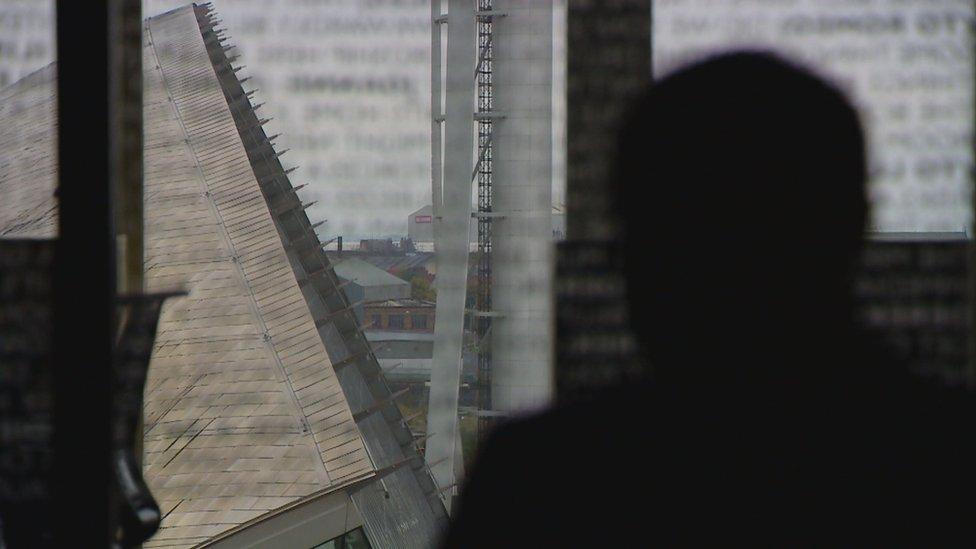
John told his parents. They phoned Ibrox and were invited to a meeting with the then manager and assistant manager, Graeme Souness and Walter Smith. He says the initial meeting took place in Souness' car, across from Ibrox.
He says the meeting then continued in Souness' office and Neely was brought in and confronted.
John said: "[Neely's] face just fell when he saw me. Mr Souness said: 'This boy says you had him over your knee.' He said: 'No I didn't boss, no, no.' I broke down and said: 'You did so.'
Neely later confessed, and Souness sacked him on the spot.
Since 2016, Rangers has insisted it also reported Neely to the police.
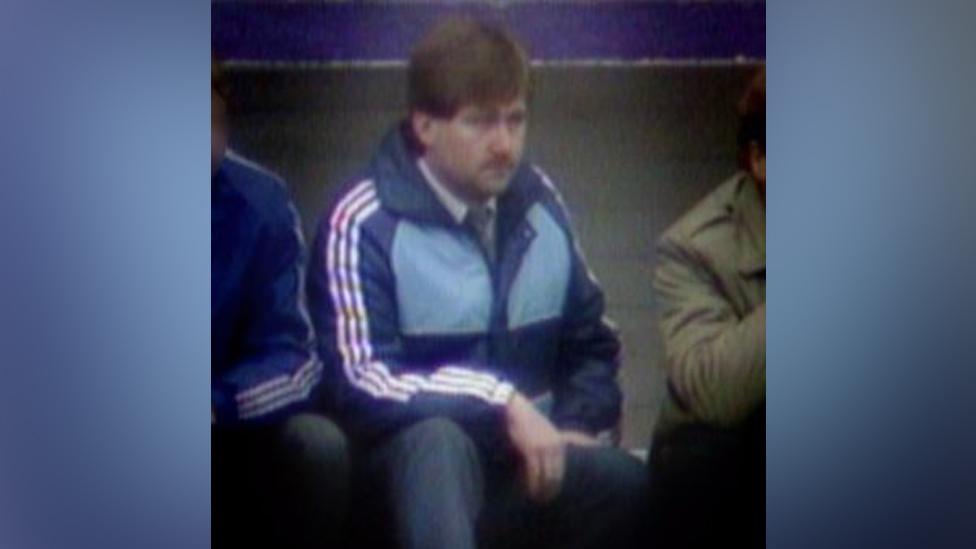
Neely had a youth development role with Hibs in the early 1980s
"Total lies," said John. "No, they didn't go the police.
"When I made my statement to the police [in 2016] they said they couldn't find any trace of any record at all going back to what Rangers are saying.
"Nobody came to speak to me either when I was that age. That's how I know nothing was reported to the police."
Martin Henry, who led the SFA review into child abuse in football, told the BBC his review had been "unable to confirm either way whether an actual formal report was made to Strathclyde police at that time".
Wished 'every success in the future'
But despite Rangers' claims that Neely was sacked and reported to the police, that's not what they told the public.
In an edition of the in-house weekly newspaper Rangers News on 20 March 1991, a story titled "Neely Moves On" appears on page two.
It states that Neely "resigned last week after spending four years at Ibrox".
It continues: "Neely, who was previously with Dundee United and Hibernian, has decided to go into business.
"The club wishes him every success in the future."
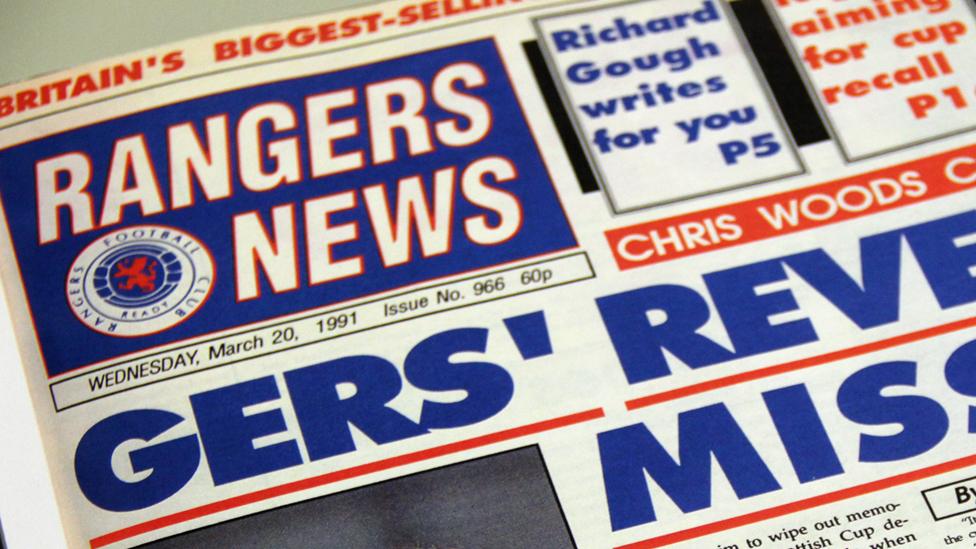
The article appeared in Rangers News in March 1991
When shown the article, John told the BBC: "Well, there you go. On one hand they tell you they went to the police. And on the other hand, he went with their best wishes. A paedophile? Unbelievable. A cover-up."
Martin Henry said the article was "concerning," and was "new information" that his review had not previously been aware of.
He added: "It would concern me if any institution knew that somebody presented a potential risk to young people and didn't follow it up with due care. And from what I've read, that appears to be the case.
"I can only construe it could well be that this was a public relations attempt to just explain Mr Neely's departure and to do it in a way that was as less compromising as possible."
Mr Henry's full SFA report will be published this year.
Rangers did not respond to a request for a comment from BBC Scotland, instead it issued a statement to The Herald, external.
A spokesman for club said: "Rangers based its prior description as to what occurred on trusted first-hand accounts from those with personal knowledge of what took place and the appropriate steps taken at that time.
"To suggest... that these are invalidated by a short, filler piece in the Rangers News written almost 30 years ago by someone who clearly had no knowledge of the events, or the reasons for Neely's sacking is nonsense."
He added: "Rangers will do all it can to assist in offering support and counselling to anyone affected. Their wellbeing should be at the centre of every right thinking person's concern."

'It takes something away from you'
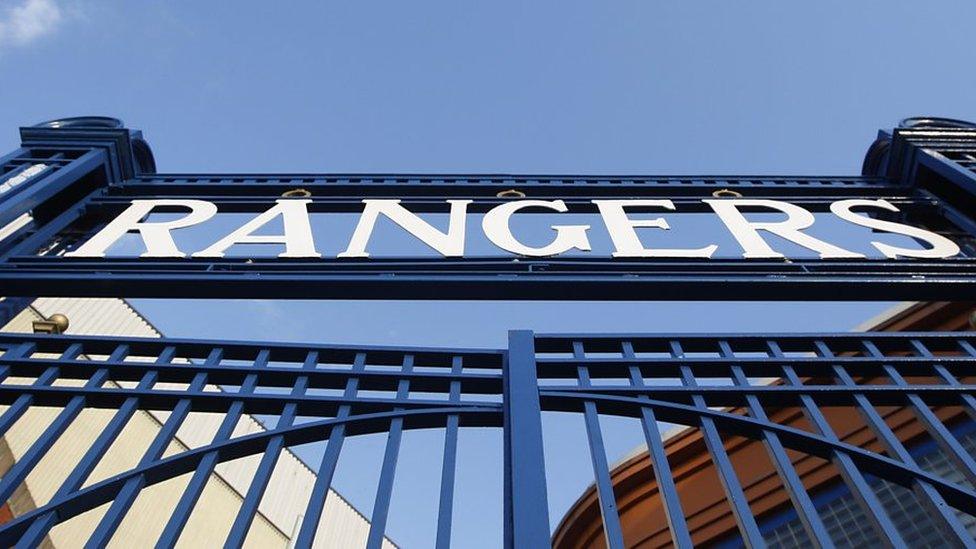
A week or two after Neely left the club, John says that another coach came into the Ibrox dressing room to speak to his team.
John said the man barged in and said: "Right, there's somebody in here, and you know who you are, that's been telling lies about my best friend."
John said: "I knew straight away it was me they were referring to… I just put my head down.
"I didn't go back. How could I?
"It affected me. I came back to football, to Dundee United, but [on] maybe my second training session there was something missing. I didn't want it.
"It takes something away from you - trust. I decided to stop. I just lost interest, I suppose."

'I hope lessons can be learned'
In 2017 the BBC revealed that Neely went into private coaching after leaving Rangers, and continued to abuse well into the 1990s.
Another former youth player says he was abused by Neely for four year during the 1990s, at Neely's home in Perthshire.
He told the BBC: "It is very disappointing to learn that Gordon Neely appears to have been protected from investigation by the clubs… leaving him free to continue to abuse children and young adults.
"The fact Neely was able to continue to promote himself as a trusted and respected youth coach directly created a situation which led to my abuse.
"Considering Neely's death, my only hope is that lessons can be learned from this and that clubs involved in abuse will be investigated to find out how this was allowed to happen."

'I'd like an apology'
John, who is now in his 40s, is pursuing a legal claim against Rangers. His lawyer, Daniel Canning from Thompsons, told the BBC: "Our client has shown great courage in coming forward and speaking about his experience as a child at Rangers. It was not an easy thing for him to do.
"Secrecy, misinformation and a failure to take decisive action have always been the circumstances that have allowed child abuse to take place and abusers to continue abusing."
Neely died in 2014 from cancer and never faced justice.
But John says that some things could still be put right.
"I was only a wee boy at the time. [It'll be] 29 years next March… I'd like an apology - but will I see that? Probably not."